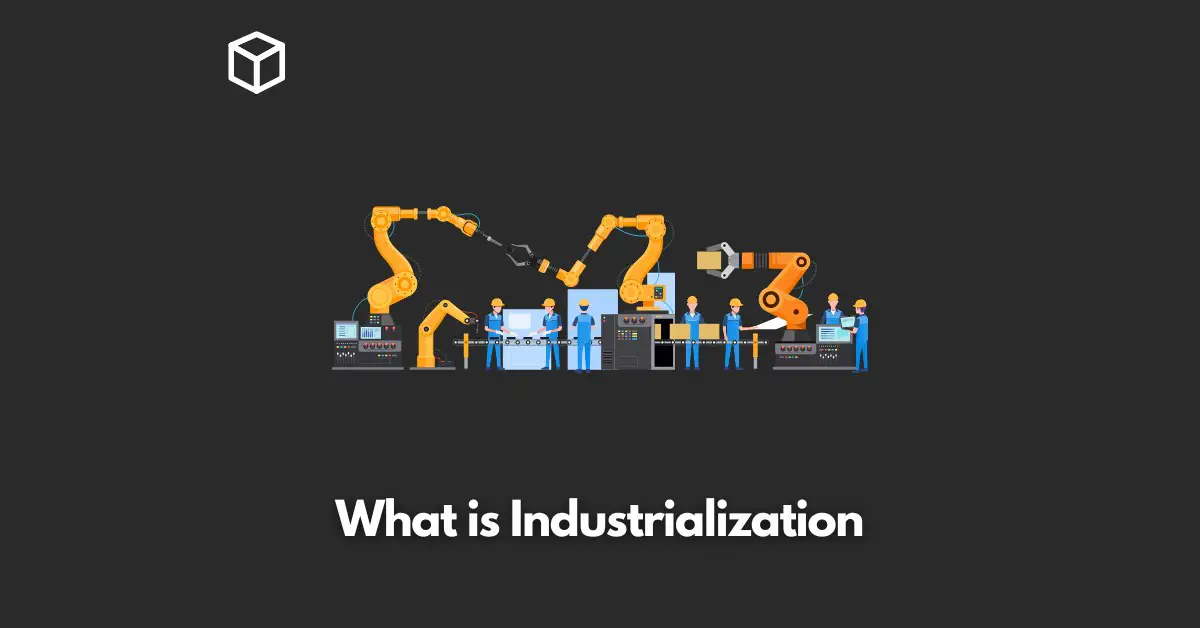Industrialization is the process by which a society or country transforms from an agrarian or traditional economy to an industrialized one.
It is characterized by the growth of industries, increased productivity, and the rise of capitalism.
The history of industrialization dates back to the 18th century, specifically to the Industrial Revolution in England.
This period marked a major turning point in human history and has played a significant role in shaping modern society.
In this article, we will delve into the beginnings of industrialization, its impact on society, economy and the environment, the challenges faced by developing countries in industrializing and the future of industrialization.
We hope that this article provides you with a comprehensive understanding of this important aspect of our history and its continued impact on our world today.
The Beginnings of Industrialization
The Industrial Revolution in England, which began in the late 1700s, is considered the first instance of industrialization.
It was marked by the widespread use of new technologies and innovations in the manufacturing sector, including the steam engine and textile machinery.
The Industrial Revolution in England led to the growth of industries and an increase in productivity, which in turn led to economic growth and improved living standards.
The spread of industrialization to other countries was facilitated by colonialism and the spread of Western ideas and technologies.
Industrialization quickly spread to other countries in Europe and North America, and later to Asia and other parts of the world.
Factors that contributed to the growth of industrialization include advancements in technology and transportation, the availability of resources, and the growth of markets.
The increased demand for goods and services, especially from the growing urban population, also played a significant role in driving industrialization.
The Impact of Industrialization
The economic impact of industrialization is significant, with the growth of industries leading to increased productivity and economic growth.
This, in turn, led to the rise of capitalism, which is characterized by the private ownership of the means of production and the creation of markets for goods and services.
However, industrialization has also had a significant impact on social structures.
The growth of industries led to the migration of people from rural to urban areas, which resulted in the formation of new social classes.
The rise of the working class and the growth of labor unions also marked a significant change in social structures.
Industrialization also had negative environmental impact, such as pollution, resource depletion, and negative effects on public health.
The growth of industries led to the release of pollutants into the air and water, which affected the health of people and the environment.
The depletion of natural resources, such as coal and forests, also had negative effects on the environment.
Industrialization in Developing Countries
Colonialism played a significant role in spreading industrialization to developing countries.
European powers imposed their economic and political systems on colonized countries, which resulted in the growth of industries and the spread of Western ideas and technologies.
The impact of industrialization on developing countries’ economies and societies is mixed. On one hand, it has led to economic growth and improved living standards.
On the other hand, it has also led to the exploitation of resources and labor, and the widening of the gap between the rich and the poor.
Developing countries face several challenges in industrializing, including a lack of resources and infrastructure, and a lack of access to markets.
Additionally, the legacy of colonialism has left many developing countries with weak institutions and a lack of capacity to effectively manage industrialization.
The Future of Industrialization
The future of industrialization is also marked by a growing focus on sustainability and environmentally-friendly industries.
The shift towards renewable energy, for example, has the potential to reduce pollution and resource depletion.
Additionally, there is a growing awareness of the need to minimize negative impacts and to consider the long-term consequences of industrialization.
The role of government in shaping industrial policy is also important.
Governments can play a significant role in fostering a conducive environment for industrialization, by providing infrastructure, education and training for workforce and creating policies that promote sustainable industrialization.
Conclusion
In conclusion, industrialization has played a significant role in shaping the world we live in today.
It has brought about economic growth and improved living standards, but it has also had negative consequences.
As we look to the future, it is important to consider how to continue to drive progress while minimizing negative impacts.
The advancements in technology and automation offer new opportunities for efficiency and sustainability.
It’s also important to remember that as we move forward, we must strive to balance economic progress with the well-being of the environment and society.




